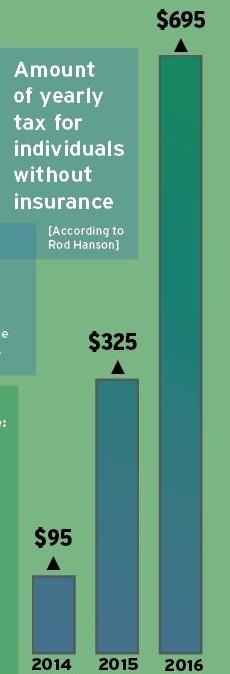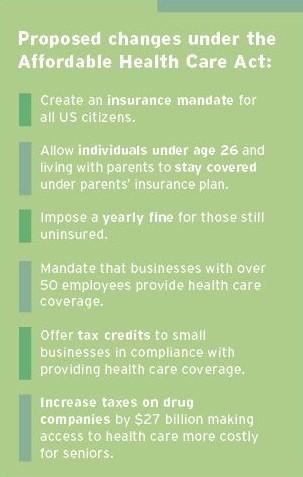Health insurance is about to change in the U.S.
 The Affordable Health Care Act known as “Obamacare” goes into effect January 2014.This act, passed on March 21, 2010, will bring many changes to all health coverage for all ages, according to Rod Hanson, assistant professor of political science at Central Oregon Community College.
The Affordable Health Care Act known as “Obamacare” goes into effect January 2014.This act, passed on March 21, 2010, will bring many changes to all health coverage for all ages, according to Rod Hanson, assistant professor of political science at Central Oregon Community College.
“This is basically just an [individual] insurance mandate,” Hanson said, “just a way the government decided upon to make sure all U.S. citizens have some form of health coverage.”
A public forum regarding the Health Care Act was planned by Lonna Pruett Rand, a Health and Information Technology major at COCC, and a group of COCC students working together as part of a class project for an HIT class.
“Obamacare changes almost on a daily basis,” Pruett Rand explained. “Politics aside, we need to know what is really happening with this issue and how it will affect us.”
The portion of the Health Care Act that will have the largest impact on students is the individual mandate, according to Hanson.
“One of the pieces that will come into effect right away is this individual mandate,” Hanson said. “[Meaning] that every U.S. citizen has some type of insurance coverage, whether it be government funded or private insurances.”
Individuals under age 26 who are still living at home will be able to stay on their parents insurance plan until age 26 which according to Hanson, could possibly help more individuals to have insurance coverage.
Those who choose to remain uninsured will be fined yearly, according to Hanson. The fine will be $95 the first year and will steadily increase thereafter.
“In the meantime, we are going to have people who are just going to wait until that fine gets larger,” Hanson explained. “It would be wise to get an insurance plan right away, just because what if something happens and suddenly you need [insurance], but a small fine may not get people to see this.”
The healthy, younger generation may not realize the importance of having an insurance plan, and Hanson questions the effectiveness of such a small fine.
“It is the younger group that might not generally have insurance,” Hanson said, “because their health is good, and they [feel] it isn’t necessary yet.”
Overall, Hanson believes this act is a positive idea, and he hopes it will have a positive impact on the community.
 “Generally the idea of providing health care is a good idea,” Hanson said. “The question is, should this be done at the national, state or individual level?”
“Generally the idea of providing health care is a good idea,” Hanson said. “The question is, should this be done at the national, state or individual level?”
Both Hanson and PruettRand believe students should stay informed about how the Health Care Act will affect them.
“It is critical to stay up to date on the changes and what this means for us,” PruettRand said.
–Molly Svendsen
The Broadside
(contact: [email protected])







